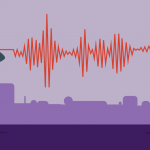Our Favorite Accent Reduction Tips
Learning a foreign language isn’t something that can be done overnight. It takes weeks, months, and years to truly become a fluent speaker! Sure, you may start with some vocabulary words. Then you get into grammar and spelling and – wow! It’s a lot of work to learn a new language, even if it is a common language like English or Spanish. Let’s say you’ve worked hard and built your skills and you are a pretty fluent speaker. Now you can communicate!
Hold on. Perhaps in your experience, you’ve had trouble being understood by native speakers in the classroom or the workplace. If enough people look at you with a confused look or ask you to repeat yourself over and over, this can really hurt your confidence and cause you to be self-conscious when you’re talking to others in English.
If you want to really sound like a native speaker, there are things you can do to improve your pronunciation.
Accent Reduction Classes
The first and perhaps the most obvious first step is to take accent reduction classes, like the one offered by Excel English Institute. These classes will help you with tools to sound more like a native speaker. Another strategy to help with improving pronunciation is to download a pronunciation or accent reduction app onto your phone and practice every day. Just ten minutes could make a difference if you stick with it! There are also many things you can do on your own to minimize your accent and maximize your ability to sound like an authentic English speaker.
Listen to as much English as possible. Check out a radio program or audiobook in English and try to mimic the sounds. Pretend to be a parrot and just reproduce what you hear even if you don’t know what the words mean. Recording your voice on your phone or voice recorder and comparing what you sound like against the audiobook or podcast can reveal how differently you produce the sounds in relation to a native speaker. Try to determine how you produce the vowel and consonant sounds and change the way you speak to sound more like what you hear. Our favorite accent reduction tips are below.
1. Stress the Right Sounds (But Don’t be Stressed About It!)
We emphasize (stress) only some sounds or words in English. If a word has more than one syllable, only one syllable (and sometimes two) are stressed. The other syllables are not emphasized.
For example, the word AR-a-bic and ae-RO-bic sound similar but the stress falls on different syllables changing the meaning of the words; one is a language and the other a form of exercise.
Within a sentence, usually only the content words are stressed – smaller articles (a, the) or preposition words (and, but) are unstressed. Sometimes it’s hard to even hear them, because they normally contain the “uh” (schwa) sound. Check out the sentence below for an example:
“I have uh phone in thuh car.”
NOT
“I HAVE A PHONE IN THE CAR.”
Stressing every single word will make you sound like a robot!
2. Linking the Words: It’s Like Music
Linking is just what it sounds like: connecting words and phrases together. We link the end of one word and the beginning of the next word. Speech is fluid and rhythmic, like music, so we don’t say:
“My. Teacher. Wants. To. Give. Me. A. Hard. Test.”
But instead, we say what sounds like:
“My teacher wansta gimme a hard test.”
Often when linking happens, smaller words change in sound completely. Sometimes the sound will change (“did you” = dijoo); sometimes we’ll lose the sound (“want to” = wanna.)
You can think of sentences in terms of connecting phrases to help establish your rhythm.
3. Intonation: Pitch Matters!
Intonation is the rise and fall of sounds in a sentence. It is the stress and linking of a whole sentence rather than a single word. Intonation often reflects the way we feel and conveys our attitudes just by the high or low pitch we put on parts of the sentence.
This is when we make our voice rise and fall in a sentence. It’s important because we use it to show our attitude towards something. People who are native speakers of Eastern languages like Chinese or Thai often grasp this concept quite well, because intonation plays a large role in their native languages.
For example, if you say “great” with a higher pitch at the end you are communicating that something is indeed great or wonderful. However, if you say “great” with a falling intonation at the end, you might mean you are actually unhappy (which is not great at all.)
For example, if you say, “My mother is coming over tonight,” and your spouse responds with “great” with a rising intonation, it shows excitement that your mother is coming to visit. However, if you reply “great” with a falling intonation, you are communicating: “I don’t enjoy seeing your mother and I wish she wouldn’t come.”
10 More Accent Reduction Tips for Sounding Like a Native English Speaker
The more you listen to native speakers on TV or in recordings, the more these subtle nuances will help you with your pronunciation. Here are ten quick tips to keep in mind to help you sound like a native English speaker.
- Practice reading out loud.
- Record yourself speaking over and over.
- Pay attention to what words are emphasized.
- Pay attention to what you are communicating through your intonation by practicing words with different tones.
- Don’t speak too fast or too slow.
- Be methodical by setting specific pronunciation goals (for example, to master b versus v.)
- Continually check the pronunciation of new words in a dictionary.
- Don’t be afraid to ask for feedback! Native speakers are much more likely to correct your pronunciation than your grammar.
- Be aware of how words change their sounds when they’re next to other sounds.
- Keep your mouth and face muscles relaxed. You may be using muscles you haven’t used before, so stretching before you start can help!
Ready to get working on your accent reduction? We have new classes starting all the time! Apply online to Excel English Institute or give us a call today to get started!













